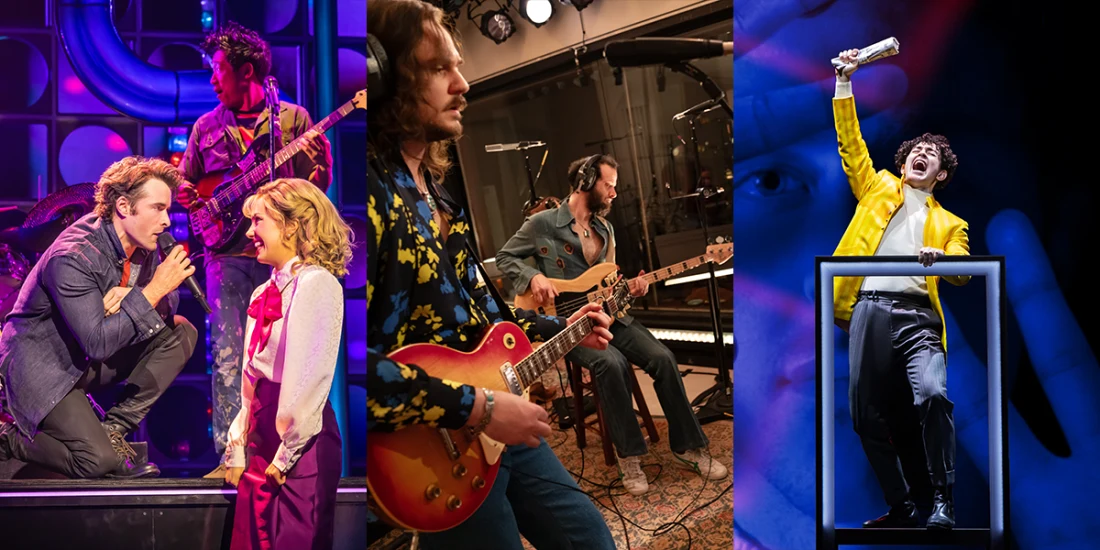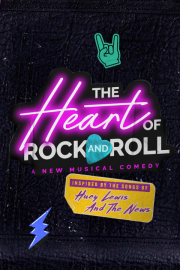Rock music takes the stage in three Broadway shows this spring
Songs by rock bands The Who and Huey Lewis and The News appear in high-energy musicals alongside a new play with music inspired by the 1970s rock scene.
Rock on! And on! And on! Broadway currently sports three very different shows featuring rock music, a diverse and exciting genre that never gets old. Not to mention, the shows feature rock legends like Pete Townshend, Huey Lewis, and (sort of) Fleetwood Mac.
These shows include the new musical The Heart of Rock and Roll at the James Earl Jones Theatre, the new play Stereophonic at the Golden Theatre, and the revival of The Who's Tommy at the Nederlander Theatre.
What’s behind the current surge in rock music on Broadway? “It has to do with nostalgia, for sure,” said Gordon Greenberg, director of The Heart of Rock and Roll, set to Huey Lewis and The News' songs. “It’s Proustian. Every one of the songs in our show brings back a distinctive memory.”
And at the same time, he acknowledged, placing songs in a different context – on stage instead of Spotify – lets music rock in fresh ways. Part of the fun, Greenberg added, “is the collision of what the music might mean to you and how it’s being used in a show.”
Creatives from the three rock-centric shows running now shared their takes on why rock always rocks, inspirations for their show, and what audiences can expect.
Get Broadway tickets on New York Theatre Guide.
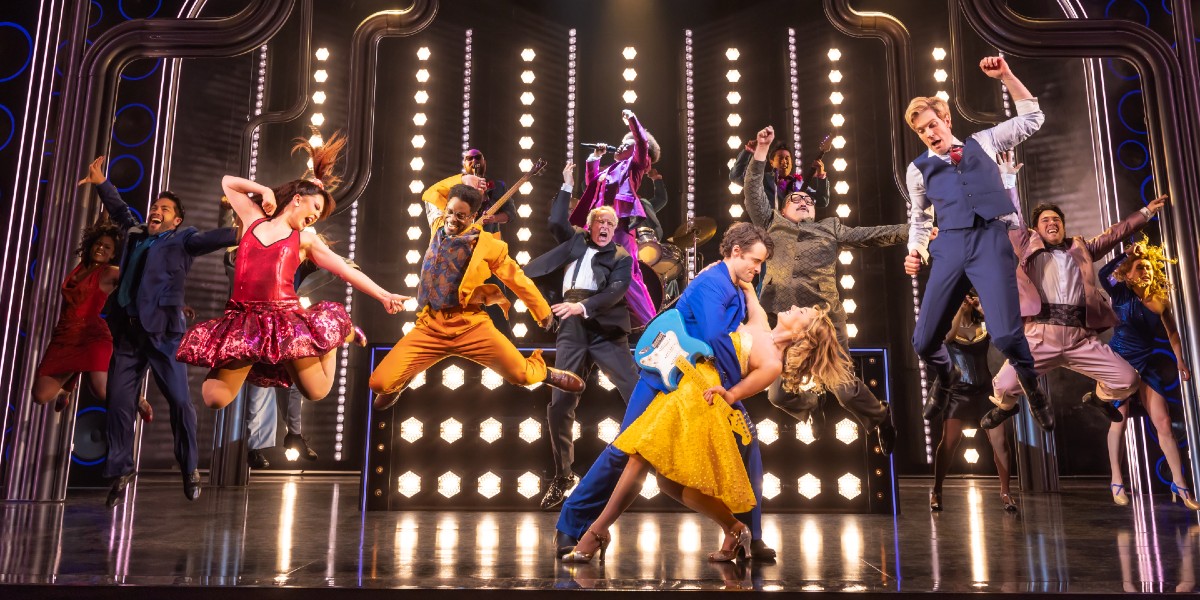
The Heart of Rock and Roll reimagines '80s rock hits
This jukebox musical rom-com is set in the 1980s and driven by the catchy catalog of Huey Lewis and the News and a book by Jonathan A. Abrams. Bobby (Corey Cott) is “workin’ for a livin’” in the humdrum corporate world, but he's a dreamer who takes one last shot at being a rocker. Lewis, who’s been closely involved in the show, would approve!
“Hip to Be Square,” “I Want a New Drug,” “If This Is It,” and other Lewis earworms all tell stories in their own right – and within the show, they nudge Bobby’s along. “Huey’s music is wildly theatrical,” said Greenberg. “Huey was making music that harkened back to the '50s. He had a full horn section, lyrics that actually evoke a feeling, and juicy melodies.”
A challenge and delight of working on the show, first seen in San Diego in 2018, was “puzzling out” how to thread together the songs into the fabric of a new story, Greenberg added.
“A lot of it has been figuring out how to reverse-engineer these songs to make them beautifully resonate within the show,” he said.
“We all dreamed up new contexts, new ways to hear the song,” he said. “That's Not Me,” for instance, has become a doo-wop number for an a cappella group. “The Power of Love,” which is also used in Back to the Future on Broadway, has become what the director described as “a massive extravaganza.”
"We call the show a joy machine," said Greenberg. "A new generation that extends up to people in their 20s or even 30s, who didn't necessarily grow up with this music, are finding it the way, when I was a kid, I discovered Burt Bacharach and Diana Ross and the Supremes.
"The songs are buoyant," he continued. "They’ll all bops, as the kids say."
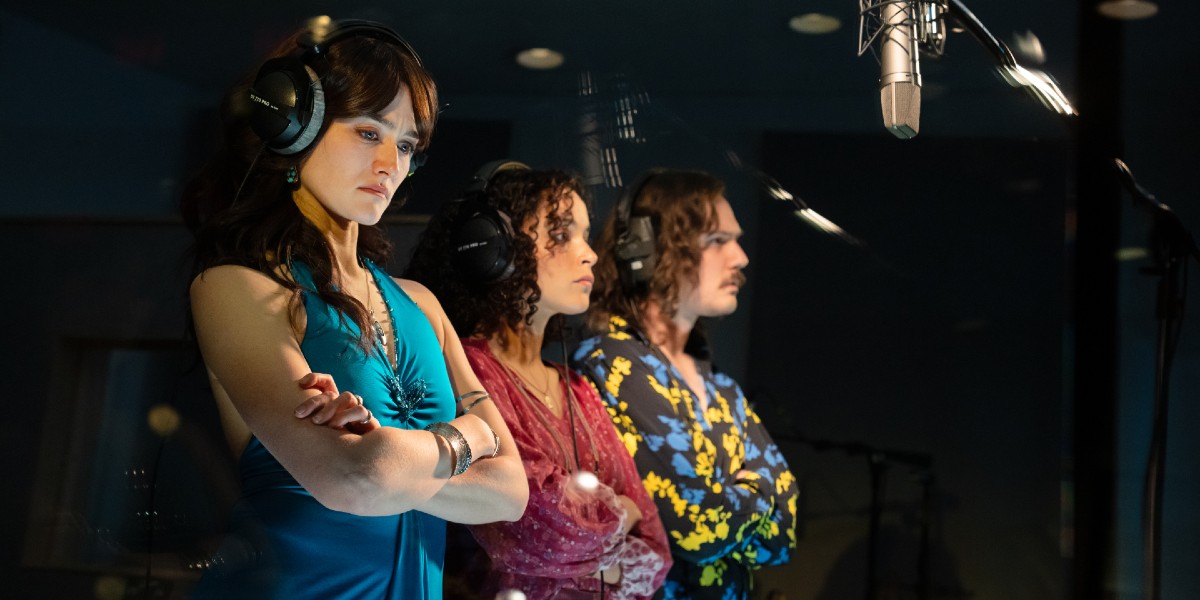
Stereophonic summons the sound of the ’70s
David Adjmi’s simultaneously intimate and sprawling 3-hour play flashes back to the 1970s. An unnamed five-member rock band's last LP has suddenly hit number one, and we see them in the music studio struggling to record their next album – and with each other.
Will Butler of Arcade Fire wrote the original songs by the fictional band, whose turbulent story recalls Fleetwood Mac and Rumours. Adjmi has said the play isn’t based on that group, but the delicious, ’70s-flavored ear candy performed by the cast – including songs called “Masquerade,” “Drive,” “East of Eden” – echo their bell-bottom-era hits.
Getting into the songwriting groove for the play began with a deep dive into the period, according to Butler. “The material culture of ’70s recording was so important – and still so alive today. The mics are still around; they still sound the best,” he said, adding that old-fashioned amps, guitars, and other elements also endure in modern rock music.
“Put a 12-string Yamaha guitar from the '70s in your hands, and the music that comes out is already well on its way to sounding like the era,” Butler said.
During the play, the band records numerous takes of songs as the members strive to get it right. The process evokes an actual band at work – and at each other’s throats. You can’t imagine how much trouble one snare drum can cause.
“I knew from the beginning that the presentation of the songs would be fragmentary – that we’d hear a demo, we'd hear one verse and chorus of a song, and later the bridge,” said Butler. “I tried to let the songs emerge from the characters and from the script.”
“Things didn't really kick off until David Adjmi had a mostly complete script, and it was clear what the through lines were, what each song wanted to accomplish emotionally,” Butler added. “And then it was just drafts, drafts, drafts.”
So who did inspire Butler's Stereophonic music? “I honestly listened to a lot of ’70s Scratch Perry,” he said. The Jamaican record producer was central to the development of dub music in the 1970s.
“This music doesn't sound like Scratch Perry,” he added. “But he was such a creative producer, and his work is so much about cracking songs open and letting whatever is meaningful out — whether it's beautiful or funny or strange. It was in some ways the brief of the play. And the music is amazing.”
Get Stereophonic tickets now.
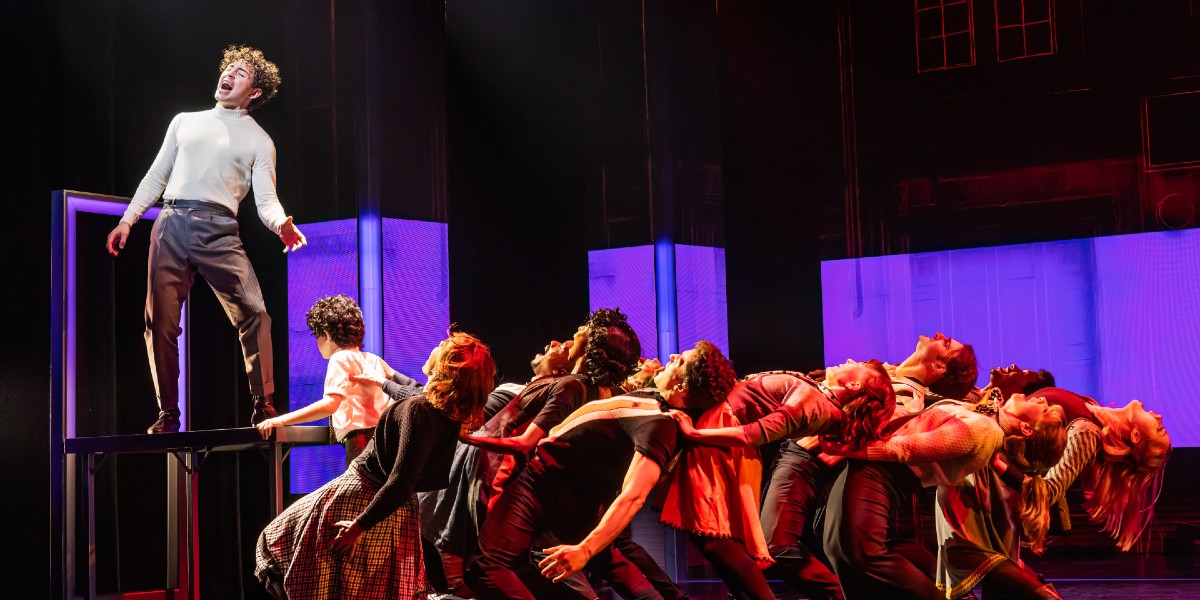
The Who’s Tommy defies time and age
Based on a 1969 concept album by British band The Who, Tommy became a movie six years later and a Broadway rock opera in 1993. The plot follows traumatized Tommy Walker (Ali Louis Bourzgui as the character's adult self), who loses most of his senses but turns his uncanny talent for pinball into celebrity. Pete Townshend’s Tony Award-winning score includes “See Me, Feel Me,” “We’re Not Gonna Take It,” and “Pinball Wizard.”
“Rock and roll in general does tend to develop fanatical followers, whether it's the Beatles or Queen or Elton John or The Who,” said Des McAnuff, who won a Tony for directing Tommy in 1993 and now stages the current revival.
“That's a powerful thing,” he added. “That isn't Tommy's exclusive domain, but people do get deeply influenced by the art they grow up on.” As such, Tommy on Broadway delivers a heady dose of nostalgia as well as a fresh experience for the uninitiated.
“I consider this a great privilege to work on what, to me, is absolutely the greatest concept album of its kind,” said McAnuff. “I think it dwarfs everything else. The only thing that maybe would come close would be Sgt. Pepper['s Lonely Hearts Club Band].”
As much as the show throbs, McAnuff appreciates the fact that rock leaves room for softness. “There's a real humanity to this piece, which has always been there from the time Pete composed it when he was, by the way, 23," McAnuff said. "It's always had a very strong heartbeat.”
Throughout his long relationship with Tommy, McAnuff has marveled at its impact on other bands – he name-checked Oasis and The Law, for instance – and young audiences.
“When young people come to hear this, it’s theirs,” said McAnuff. “They own it, they adopt it, and there’s much less old fogy-ism than one would expect for a piece that's now so many decades old.”
That’s what you call rock of ages!
Gillian Russo contributed reporting to this story.
Photo credit: The Heart of Rock and Roll, Stereophonic, and The Who's Tommy on Broadway. (Stereophonic photos by Julieta Cervantes; Heart, Tommy photos by Matthew Murphy and Evan Zimmerman)
Originally published on
